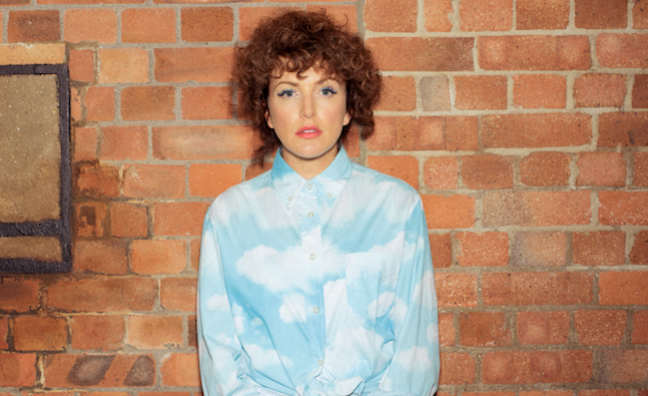“Sorry, rant over…”
Annie Mac had just finished asking what the music industry is doing to train artists to deal with being in the public eye, wondering why we spend so much on styling and studios and so little on coaching to navigate “the Wild West of social media”.
The BBC Radio 1 DJ and host of AMP London's impassioned question just about summed up the second edition of her music industry conference, supported by Music Week, which took place in Camden today (March 6). It also goes some way to explaining Mac’s role in the industry today. The presenter is a force for change, someone who, deliberately or not, has developed a reputation for asking the more difficult questions, the ones many are content not to bother with.
And so it was that a line-up including Universal Music chairman and CEO David Joseph, BBC Radio 1Xtra’s Tiffany Calver – who Mac championed in Music Week last year – and Decca boss Rebecca Allen gathered at Camden House to rake over the ins-and-outs of the music business in front of a jam-packed audience comprising a pleasing mix of established and aspiring music execs and artists.
After Calver helped fire a discussion about how to be successful in music and David Joseph outlined Universal’s neurodiversity policy, Polydor co-president Ben Mortimer could be heard openly calling on the industry to do more to protect artists’ mental health.
“Media training has been one of the first things we talk to artists about,” he said. “That’s not so common anymore, but maybe now we need life training, talking about health, sleep, exercise…”
.@MayaJama speaking about her early career on our Mental Health discussion this afternoon ???? #AMPLondon @AnnieMac pic.twitter.com/bMUlE7X8pM
— Annie Mac Presents (@Amp) March 6, 2020
Jordan Stephens, once of Rizzle Kicks and Ellie Goulding, alongside Tap Management’s Ben Mawson and presenter Maya Jama spoke at length about the pressures on the mental wellbeing associated with the modern incarnation of the music industry. They called for social media blackouts, and Stephens and Goulding offered sobering insight into what it’s like to be in the spotlight. Calling for mentorship and for labels to do more to support the acts they sign, they spoke passionately. Like everyone speaking at AMP London 2020, they talked with frankness and zero inhibition.
Few exhibited these qualities more than Ferocious Talent artist manager Kwame Kwaten, who spoke on Music Week’s independent music panel alongside our Women In Music International Woman Of The Year Zena White, Dirty Hit’s Jamie Oborne and AWAL VP, A&R, Matt Riley.
“Impatience is the No.1 mistake artists make,” began the former Music Week cover star, who added drama by referring to his phone for notes. “And don’t just play your music to your mates, do it, for the shot in the arm and the boost, but then play it to a room of people you don’t know and see what happens.”
A wide-ranging conversation took in Oborne’s work with The 1975, White’s success with Idles and Fontaines DC and AWAL’s streaming surges for the likes of Rex Orange County, with the panelists united in underlining the importance of artistry in the indie world.
'The State of Independence: Releasing Records and Building Icons in 2020', a really insightful panel with Kwame Kwaten from @FerociousTalent, Matt Riley from @AWAL, Jeremy Obourne from @dirtyhit Zena White from @partisanrecords and Ben Homewood from @MusicWeek #AMPLondon pic.twitter.com/GbCQ9zHQ98
— AIM (@AIM_UK) March 6, 2020
“Any time I listen to an artist with loads of followers it’s always led to a load of shit!” Kwaten exclaimed. “Start from nothing, why not? We love the climb…”
Oborne’s story about discovering Beabadoobee on Spotify while in the office with his team and White’s frankness around Idles’ and Fontaines DC’s streaming strategies helped show the craft and talent that’s powering independent music at the moment. And when the discussion ended with an audience member’s persistent questioning on how to find new talent (“Are you saying we’re lying?” Oborne smiled) the human face of the music business could be seen. And that very much feels like the point of Annie Mac’s AMP London Conference.









